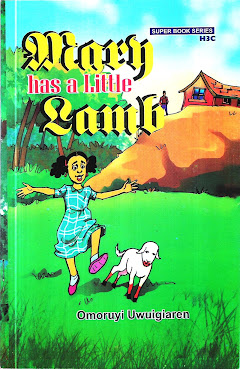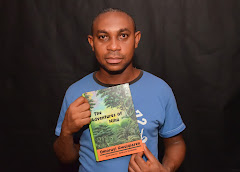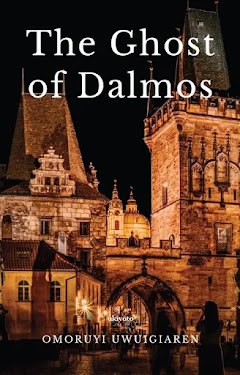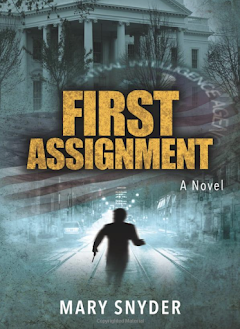Now, I did say the worst part of Mr Ogunye’s polemic in that first part of his piece was his attempt to redefine the meaning of insurrection so as to justify the military operation in the South-East, even though the President and the Armed Forces have not said they are there to quell an insurrection. This argument is crucial for him, even though he somewhat tried to straddle both sides as he went along because he wants to find an extraordinary reason for the military being there. I mean, he started off strongly claiming there was an insurrection in the South-East that triggered the President into acting on the basis of section 217(2)(c) of the Constitution. He made out that the only question was not whether there was an insurrection, but whether the President has any parliamentary check on his powers to deploy the military at that point. He assures us that “a calm and sober reading of the provision of Section 217(2)(c) does not yield a meaning that unless and until the National Assembly makes a law setting out or prescribing the conditions for the exercise of the power of the President to call on the military to suppress an insurrection in aid of civil authorities, the President cannot exercise that power”.
Then, in the midst of all that, he came up with this:
“Now, more relevant to our question for determination in this essay, Section 218 (1) of the Constitution provides that “the powers of the President as the Commander-in-Chief of the Armed Forces of the Federation shall include the power to determine the operational use of the armed forces of the Federation”.
“Under Section 218 (1) of the Constitution, the President, as Commander-in-Chief, determines the operational use of the Armed Forces of the Federation. The same power of determining the operational use of the Armed Forces is vested in the President by Section 8(1) of the Armed Forces Act, which in Section 8(3) [the definition subsection] defines “operational use of the Armed Forces” to “include the operational use of the Armed Forces in Nigeria for the purpose of maintaining and securing public safety and public order”.
“Thus, even if there is no insurrection, if there is a real and present threat to public safety and order, and there is a need to maintain and secure public safety and order, the President is statutorily empowered to operationally use the Armed Forces to keep or enforce the peace”.
This is tongue-tying obfuscation! Who is arguing that the President’s power to determine the operational use of the Armed Forces of the Federation is in question? I mean, Mr Ogunye told us that the President exercised his operational power over the military under section 217(2)(c) of the Constitution because there is an insurrection. Having led us mid-sea, he then turned round to say, actually, even if there is no insurrection, the President is still statutorily empowered to operationally use the Armed Forces to keep or enforce the peace, as far as there is a need to maintain and secure public safety and order. And he now wants us to believe that “more relevant to our question for determination” in his essay is the President’s power as the Commander-in-Chief of the Armed Forces of the Federation to determine the operational use of the armed forces of the Federation. How? Who is debating the President’s power to determine the operational use of the armed forces of the Federation? And, by the way, is the power of the President to determine the operational use of the Armed Forces independent of section 217, which clearly indicates the circumstances and stipulates the conditions under which the Armed Forces can be deployed? Does the fact that the Constitution empowers the National Assembly to prescribe conditions for the exercise of the power of the President to call on the military to suppress an insurrection and aid civil authorities stop the President from exercising his operational power over the Army?
It seems to me that Mr Ogunye tried to ‘insure’ his argument when he declared that “…even if there is no insurrection, if there is a real and present threat to public safety and order, and there is a need to maintain and secure public safety and order, the President is statutorily empowered to operationally use the Armed Forces to keep or enforce the peace”. So, really, can the President deploy the army even if there’s no insurrection? Sure, but only if such a situation is covered under 217(2)(c), that is if the civil authorities in the area call on the President to deploy soldiers to act “in aid of civil authorities to restore order”. I mean, we operate a federal system and there is a reason the Governor of a state is the Chief Security Officer of that state, there is a reason every state has its Police Command under a Commissioner of Police. In exercising his power to deploy the troops under section 217(2)(c), the Constitution is contemplating situations where the civil authorities and the police in the state must have failed to contain the trouble in question and are therefore compelled to call upon the President to deploy soldiers “to restore order”. This can be done under the provisions of section 305(4) of the Constitution, that is when the Governor of a state and the state legislature request the President to issue a Proclamation of a state of emergency when any of the events specified in section 305(3)(c), (d) and (e) happens or it can be done directly under the provisions of section 217(2)(c) once it is obvious that the civil authorities cannot cope and once they ask for the help directly without a declaration of a state of emergency. In any case, deploying soldiers in cases of civil disturbances is certainly not the first line of action, no matter what the President thinks.
And that brings me to the question of why Mr Ogunye did not deem it fit to explain the role of the police in all this. I mean, you would expect that if he’s calling for the outright deployment of soldiers or is justifying same, he should be able to tell us why the police are not the appropriate authorities to call in at this stage. Why does he think the use of the military is okay in any case there is the need to secure public safety and order? What law supports that view?
It is instructive that at the height of the menace of the Fulani herdsmen in June last year, and after the uproar that followed the Global Terrorism Index rating them the fourth deadliest terrorist group behind Boko Haram, ISIS and Al-Shabab, the Minister of Interior, Lieutenant-General Abdulrahman Dambazau (Ret) came on air to educate us about this matter. This was at a time the Middle-Belt, Southern Kaduna and the entire South were in the grip of fear of these marauders. Asked why the Armed Forces have not been called in to deal with these people, Dambazau eloquently responded:
“We must protect the country which is the main function of the police. The Civil Defence is there to compliment them too. This is a non-military issue that borders on law and order. It is not every security issue that you call in the military. It is the responsibility of the police to maintain peace. I believe that if we put the police in proper position in terms of discharging its functions, then there would be no need for military option. The police are equal to the task. If you have to deploy the army, then you are going above board (sic). In any case, I do not even have the power to deploy the military for anything. It is only when the situation gets out of hand that you invite the military.”
Of course, despite obvious government hypocrisy and double standard in dealing with security issues in the country, Dambazau is right in his analysis of the role of the police as the appropriate agency to deal with issues of this nature, rather than the Armed Forces. Or what exactly happened in the South East that we all missed that necessitated the Army coming in uninvited, bypassing the Abia State Police Command and marching straight to Nnamdi Kanu’s village to “show force” and show off their armoury? Why are we now shrieking at the great scandal that is the stone-throwing and stick-wielding rabble that confronted the jejely-going-on-their-own armed-to-the-teeth members of the Nigerian Army they feared were coming for their leader? Where is the sense in a President who will not deploy the Army against the murderous Fulani herdsmen sending soldiers into Igboland to quell a non-existent insurrection?
The basic and most important point to make in this whole debate is that if there are elements of IPOB acting criminally, and I suspect there is, the Constitution under section 215(3) has given the police the exclusive right to maintain law and order and secure public safety and public order. Section 4 of the Police Act, talking about the general duties of the police plainly states: “The police shall be employed for the prevention and detection of crime, the apprehension of offenders, the preservation of law and order, the protection of life and property and the due enforcement of all laws and regulations with which they are directly charged, and shall perform such military duties within or outside Nigeria as may be required of them by, or under the authority of this or any other Act”. It is precisely for situations that call for the police to perform military duties that led to the creation of the Mobile Police arm of the Force.
Indeed, the courts in interpreting our laws have firmly stated that the military cannot be deployed to take over the duties of the police. Without a doubt, this is settled law. In the Court of Appeal case of Yusuf v Obasanjo (2005) 18 NWLR (PT 956) 96, the Court took time to explain what should be the overriding consideration in enforcing security in a democracy. It was ruling at a time General Olusegun Obasanjo had reduced our democracy to a “do-or-die” affair. According to the Court: “It is up to the police to protect our nascent democracy and not the military, otherwise the democracy might be wittingly or unwittingly militarized. This is not what the citizenry bargained for in wrestling power from the military in 1999. Conscious step or steps should be taken to civilianize the polity to ensure the survival and sustenance of democracy.” In Buhari v Obasanjo [2005] 2 NWLR (Pt. 910) 24, at 520 – 521, Nsofor, JCA, was scathing in his condemnation of President Olusegun Obasanjo’s deployment of soldiers to Akwa Ibom, Benue, Enugu and Ebonyi States supposedly under powers granted him by section 217(2)(c) of the Constitution. He declared the deployment unconstitutional based on the fact that there was no state of war in any of those states and no state of emergency declared in them before the deployment of soldiers.
These two rulings are actually very important in understanding the issues in this debate because the sentiments expressed in the rulings are exactly the things Mr Ogunye is arguing against in his piece. Indeed, I find it curious that in a number of times Mr Ogunye has intervened in a public debate over the rights of citizens against the government, his instincts have been to interpret the law in a way to undercut the rights of citizens, even when everything shows that such an interpretation cannot be justified in a democratic society. This was exactly what happened when he intervened over the ill-advised ‘deportation’ of fellow Nigerians from Lagos by the Raji Fashola government. Again, we are witnessing it with this intervention and it’s now looking like a pattern that anytime we are worried about the egregious exercise of state power, Mr Ogunye will come with the excuse that it is the letter of the law. I mean, forget that the letter of the law does not even support him, what of the spirit of the law? Can you interpret any law in a democracy without applying the spirit of the law?
The funny thing is I remember watching a television programme where I saw Mr Ogunye condemn President Goodluck Jonathan’s deployment of the military in the Ekiti and Osun elections in 2014. I cannot now remember if he quoted section 217(2)(c) to support his position, but I heard him say that the military deployment does not augur well for democracy. I suppose he would say in his defence that the circumstances here are different, but the fact remains that he still has not been able to discharge the responsibility of justifying the deployment of soldiers in the South-East when there clearly is no insurrection or any other situation envisaged by section 217(2)(c) of the Constitution and where such a deployment is a clear diminution of our democracy.
Certainly, the philosophical underpinnings of Mr Ogunye’s thesis are more militaristic than democratic and that itself is a reason to question them. In fact, there is a sense that Mr Ogunye’s piece is a justification for capricious exercise of power because his whole thesis is built on the notion that the President exercises absolute power with regard to the deployment of soldiers for any reason he deems fit simply because he has the power to determine the operational use of the Armed Forces. He claims to recognize the “possibility that these wide powers granted the President by the Constitution and the Armed Forces Act can be abused or misused”, yet he finds nothing in the Constitution or in the practice of our laws to negate such a possibility. Instead, he told us that there is nothing we can do with the law as it is.
Hear him:
“It is our view that the fear of or phobia for the abuse or misuse of constitutional or statutory power, granted to the President by the law and the Constitution cannot, and must not be a basis to deny that the power was ever donated or granted. One can express deep or minor reservation about the exercise and implications of that power, and one can campaign for its legislative curtailment, or embark on its judicial interpretation. That is good. But it will amount to sheer legal sophistry to deny the existence of that power”.
In my view, such a depressing prognosis shouldn’t be coming from a public interest lawyer. That is why even a layman without any knowledge of law would find Mr Ogunye's cold conclusions unsettling. I mean, how can anyone propose to us that in a democracy the President’s power over the Armed Forces is so absolute that we cannot do anything when he abuses it? Is our democracy that fragile? Did we fight against military rule and lose great citizens in doing so only to donate that democracy back to a dictator and his military? Did we fight for democracy, going through that hellish struggle, only to donate our rights and freedoms to an absolute ruler masquerading as our democratic President? Are the framers of our Constitution so clueless as to make us prisoners of one elected man?
Of course, the Constitution does not create a political system that is a slave to the whims and caprices of one man. It is a document that empowers institutions of a state against the egregious exercise of power. That is the great value of a Constitution in a democracy. It is not in the nature of a constitutional democracy of any kind to create an executive or a presidency that is not answerable to anyone in the exercise of any power conferred on the person or the office by law. The presidential system we practice, warts and all, is governed by a clear separation of powers between the branches of government. This is in consonance with the democratic principle of checks and balances. Both the principles of separation of powers and checks and balances ensure that no person or arm of government is given wide discretionary powers that undermine democratic accountability in any area of governance, whether in the deployment of soldiers or in the signing of a cheque. In this case, the National Assembly and the judiciary are to check on the President’s power of military deployment because they know the power of the gun. No democracy turns the gun against itself. The Constitution ensures that where powers are given by the Constitution, there will be provisions within the same Constitution and the law to operatively check that power. Nobody is allowed to exercise extraconstitutional power against the people who are the sovereigns of their democracy.
At this point, it would be proper to look more closely at section 217 of the Constitution, so we can properly interpret the letter and the spirit of the law to understand the intendment of the Constitution with regard to this matter of military deployment. Allow me to quote the relevant parts of section 217 for our purpose:
…………
217. (1) There shall be armed forces for the Federation which shall consist of an army, a navy, an Air Force and such other branches of the armed forces of the Federation as may be established by an Act of the National Assembly.
(2) The Federation shall, subject to an Act of the National Assembly made in that behalf, equip and maintain the armed forces as may be considered adequate and effective for the purpose of -
defending Nigeria from external aggression;
(b) maintaining its territorial integrity and securing its borders from violation of land, sea, or air;
(c) suppressing insurrection and acting in aid of civil authorities to restore order when called upon to do so by the President, but subject to such conditions as may be prescribed by an Act of the National Assembly; and
(d) performance of such other functions as may be prescribed by an Act of the National Assembly.
…………..
So, what do we see here? Obviously, this section is the most important bit of legislation we need to properly consider in order to fully understand how the whole scheme works. The mistake Mr Ogunye is making in his interpretation of the powers of the President with regard to the deployment of the military arises more from his inability to understand what this section is about and how it is meant to work with other relevant sections in a democracy in order to achieve the intendment of the Constitution. It’s obvious from even Mr Ogunye’s own words that he, deliberately or inadvertently, still applies a militaristic outlook in his interpretation of the law under a democracy.
What this section establishes is that deployment of the military by the President can result from two situations. It can be either in response to external aggression or in response to internal civil disturbances of the nature mentioned in section 217(2)(c). As we have seen from my earlier discussion of the constitutional provisions governing deployment of Nigerian soldiers to address external aggression or for services outside the country and as we can see from the wording of section 217(2)(c), this is not a matter of discretion for either the President or the National Assembly because the whole purpose of the elaborate provisions governing the deployment is to ensure that no one is in doubt as to their duty in every situation. Of course, we do know that even if there is discretion, the courts can come in to declare the egregious exercise of a discretionary power illegal and unconstitutional, but the point is this case does not have to come to that because the law is very clear in this regard, despite Mr Ogunye’s claim to the contrary.
We can see that apart from the general powers of the National Assembly to pass laws (for instance, the Armed Forces Act and so on) under section 217(1), section 217(2)(a), section 217(2)(b) and section 217(2)(d) deal with the functions of the Armed Forces with regard to defending Nigeria against external aggression, maintaining our territorial integrity and defending our borders, including other functions as may be prescribed by an Act of the National Assembly. Basically, both functions under sections 217(2)(a) and 217(2)(b) relate to our Armed Forces fighting off any country or external enemy that tries to invade us and maintaining and securing our national borders. In both these functions, the Army is not expected to be dealing with Nigerian citizens but external enemies of Nigeria.
But then, look at section 217(2)(c) function. What is the difference? Here, the Armed Forces are dealing with Nigerian citizens in an unusual or extraordinary situation. The Constitution knows how delicate this is because the Constitution which has established the power of the sovereign people of Nigeria over its Armed Forces by stating in section 217(2) that they are the people (the Federation) who “equip and maintain the armed forces” cannot subject them to the same military that is supposed to serve them, certainly not in a democracy. The Constitution holds the right to life of every Nigerian citizen dearly because the drafters understood that one of the conditions under which a person shall not be regarded as having been unlawfully deprived of his life in contravention of section 33 of the Constitution is if such a person “dies as a result of the use, to such extent and in such circumstances as are permitted by law, of such force as is reasonably necessary for the purpose of suppressing a riot, insurrection or mutiny”. So, if a citizen’s life can be taken under such circumstances where even only “such force as is reasonably necessary” is applied, then reason dictates that there must be good reasons to make any such deployment for that purpose.
The Constitution knows that there would be circumstances the government might have to use the Army to do a job amongst civilians. The Constitution knows that you do not use our Armed Forces against your citizens, except in extreme circumstances mentioned there under section 217(2)(c) – that is (1) in suppressing insurrection and (2) acting in aid of civil authorities to restore order when called upon to do so by the President. Now, what else do we see there? That the power of the President to use the Army for a section 217(2)(c) function is subject to such conditions as may be prescribed by an Act of the National Assembly. The reason is simple. The Constitution does not aim to give an official, whether President or not, a blanket power over life and death of citizens under any circumstance without any restraint whatsoever. No democracy gives the President such powers.
Mr Ogunye gave two reasons for ignoring the stated power of the National Assembly over the exercise of the President’s power to deploy the military in the circumstances stated by law as I have indicated above. His first reason is that since 1999 or the return to democratic rule, “the National Assembly has not passed any new legislation prescribing the conditions for the exercise of the powers of the President to order the military or the Armed Forces to suppress an insurrection”. His second reason is that the Armed Forces Act “(which originally was promulgated as an Armed Forces Decree in 1993 by the Federal Military Government, and which is now adopted under the Constitution as a received or an inherited Act of the National Assembly) has no conditions prescribed therein, limiting or circumscribing or curtailing the exercise of power of the President to call out troops to suppress an insurrection”. In other words, without any such laws or prescribed conditions by the National Assembly limiting him, the President is legally free to act as the Head of State or President under a military regime would have acted since the law is simply a received or an inherited Act of the National Assembly. According to him: “There has been no amendment of that Act since 1999 when civil rule returned to Nigeria. In the absence of such a legislative intervention it is unhelpful or futile to engage in a debate as to whether, factually, an insurrection has arisen to justify the call on the military to suppress same”.
Now, let’s ignore for a moment Mr Ogunye’s militaristic interpretation of an Act of the National Assembly, he is right that since 1999 the National Assembly has not passed any new legislation prescribing the conditions for the exercise of the powers of the President to order the military or the Armed Forces to suppress an insurrection. But telling us that the Armed Forces Act (which originally was promulgated as an Armed Forces Decree in 1993 by the Federal Military Government and which is now adopted under the Constitution as a received or an inherited Act of the National Assembly) “has no conditions prescribed therein, limiting or circumscribing or curtailing the exercise of power of the President to call out troops to suppress an insurrection” reveals precisely the mischief that the Constitution is trying to address by the provisions of sections 217(2)(c) AND 305 regarding the declaration or Proclamation of a state of emergency.
What do I mean? We recall that Mr Ogunye stated that in resolving the question of the legality and constitutionality of Operation Python Dance II, it was important that we consider section 305 of the Constitution amongst others. Section 305 governs the declaration or Proclamation of a state of emergency and Mr Ogunye took the pains to quote the whole section and then concluded thus:
“Under Section 305, the provisions that govern the declaration or proclamation of a state of emergency, as it affects a part of the Federation or any of the States in the Federation, the President cannot act alone, without the concurrence of the National Assembly, or without a request from a state governor, backed by a resolution of a state house of assembly. The situation warranting a proclamation of a state of emergency is set out in Section 305 (3)( a-g) of the Constitution. It is our humble but very firm view that a deployment of the Armed Forces under Section 305 of the Constitution, as part and parcel of a proclamation of a state of emergency, is separate and different from a deployment of troops under Section 217 (2) (c) of the Constitution to suppress an insurrection, and the operational use of the Armed Forces under Section 218 (1) of the Constitution, and Section 8 (1) of the Armed Forces Act to “maintain and secure law and order and public safety”. Under Section 305 of the Constitution, the Armed Forces may not be deployed without a proclamation of a state of emergency and the input of the National Assembly. Under Section 217 (2) (c ), Section 218 (1) of the Constitution, and Section 8(1) of the Armed Forces Act, the Armed Forces can be deployed for internal security operations in the country without recourse to the National Assembly”.
I find it curious that Mr Ogunye stated all this detail about section 305 only to declare it as “separate and different from a deployment of troops under Section 217 (2) (c) of the Constitution” (as it concerns the use of the Armed Forces internally to deal with insurrection and act in aid of civil authorities), but that is where he missed it because section 217(2)(c) must be read subject to section 305 which spells out the circumstances that would warrant the deployment of the Armed Forces for internal security operations and how to use them in such extraordinary circumstances to address the problems raised in section 217(2)(c). And even though section 218(1) says the powers of the President as the Commander-in-Chief of the Armed Forces of the Federation “shall include power to determine the operational use of the Armed Forces of the Federation”, section 218(4)(a) says the National Assembly shall have the power to make laws for the regulation of the powers exercisable by the President as Commander-in-Chief of the Armed Forces of the Federation. This clearly indicates that the Constitution has not granted the President absolute power with regard to powers exercisable under section 218(1), including the power to determine the operational use of the Armed Forces of the Federation to the extent that such power can be regulated by laws made by the National Assembly for that purpose. The combined effect of sections 217, 218 and 305 is that the military is not expected to be performing law and order functions unless under the conditions of a declared state of emergency.
Considered properly, we can see that section 305 of the Constitution dealing with a declaration or Proclamation of a state of emergency is actually a check on the presidential power of deployment. For instance, a look at section 217(2) will show that the circumstances under which the President can deploy troops based on conditions set by the National Assembly are essentially a duplicate of the conditions under which the President can issue a Proclamation of a state of emergency in conflict situations based on the approval of the National Assembly according to the processes set out in section 305. The differences in both sections are minor but necessary. For instance, insurrection is not mentioned directly as a condition for a Proclamation of a state of emergency in 305, but it is implied. This is because an insurrection can lead to any of the conditions mentioned in section 305(3)(a)-(g), but it is not all kinds of insurrection that will warrant the declaration of a state of emergency, which is why it is mentioned separately under section 217(2)(c). For instance, if two village hunters pick up their Dane guns, kidnap the Local Government Chairman and kill his police orderly, run into the bush and begin to make certain political demands on the authorities, such would qualify as insurrection. But it will not warrant a declaration of a state of emergency or even a deployment of the military. It is more likely that the police will be able to take care of that, but where they are unable to, the President, upon the invitation of local authorities, can deploy soldiers without having to declare a state of emergency, especially if the hunters’ activities do not seriously disrupt the community.
Evidently, the constitutional provisions of section 305 regarding the Proclamation of a state of emergency and those under section 217(2)(c) are deliberately included to check the erstwhile unbridled power exercised by the military President or Head of State under the old 1993 Decree as it transforms into an Act of the National Assembly. The Constitution understands that it is only in the circumstances envisaged under sections 217(2)(c) and 305(3)(a)-(g) that the military can be called upon because in every other situation the police powers under section 215 of the Constitution and the Police Act will do. The Constitution knows that everyday law and order issue is for police to handle, but if it gets to a situation that the police cannot handle it in circumstances envisaged under section 217(2)(c) and 305(3)(a)-(g), then a declaration of a state of emergency will take care of the issue because it's very nature is that it’s an emergency legislation that can quickly give power and authority to the Army and others needed to bring order to the situation. Where a state of emergency declaration isn’t necessary but military deployment is needed under section 217(2)(c), the National Assembly has no problem allowing the President to exercise his power limitedly or conditionally, even if any conditions are yet to be stated. This is because where in the judgment of the National Assembly he exercises that power wrongly, the law allows the National Assembly to prescribe conditions under which the President will exercise this power of deployment through an Act of the National Assembly, even where he has already ordered the deployment.
There is a reason the process of a Proclamation of a state of emergency is not a cakewalk for the President. The Constitution virtually requires that the National Assembly and the President be on the same page on the matter based on the consideration of the facts. That is why in Williams v Majekodunmi (1962), the then Federal Supreme Court held that it is the legislature that decides whether the set of facts justify the declaration of a state of emergency. So, if the National Assembly is not convinced that the President needs to call the Army into a situation, it simply will not pass the vote for the declaration. That is how our democracy checks the erstwhile authoritarianism of military rule. In other words, by the operation of the law giving the National Assembly the power to pass a vote or not with regard to a state of emergency, it removes the erstwhile power of that 1993 Decree that transformed into the Armed Forces Act, even without touching the Decree itself.
Now, it is important to clarify the point Mr Ogunye made about the fact that since 1999, “the National Assembly has not passed any new legislation prescribing the conditions for the exercise of the powers of the President to order the military or the Armed Forces to suppress an insurrection”. Of course, it is commonsensical that they have not because it is inconceivable that we should be passing Acts or legislations prescribing the conditions for the exercise of the powers of the President to order the military or the Armed Forces to suppress an insurrection at the drop of a hat. I mean, if we are doing that, it must then be that our society is permanently in a state of turmoil or permanently insurrection-infested to the extent that we are continually passing Acts of the National Assembly to prescribe the conditions for the exercise of the powers of the President to order the military or the Armed Forces to suppress an insurrection and so on. That certainly does not make sense. Rather, what we see is that the National Assembly has chosen to exercise its powers under section 217(2)(c) cautiously because the idea is not to be in conflict with the President whenever he decides to deploy troops; the idea is for the National Assembly to check him when in their judgment he exercises the discretion wrongly.
That is why the Constitution takes care of the above situation with section 305. It is only a lawless President or one steeped in impunity that will not make use of section 305 and instead go straight to use powers under section 217(2)(c) when he knows he cannot act without recourse to the National Assembly when he chooses that route. There is a reason that the only thing required under section 305 is a resolution of the National Assembly, which is a fast and straightforward process that only requires the National Assembly agreeing on a motion and which would only take a few minutes, than an Act of the National Assembly that can take months and years as required under section 217(2)(c). In other words, what is required under the provisions of section 217(2)(c) is not merely a resolution (as would be adequate under section 305), but an Act of the National Assembly, which must go through the full rigours of lawmaking.
Thus, while a state of emergency resolution is temporary (at most one year), an Act of the National Assembly is more permanent. It follows that before the National Assembly would consider it necessary to pass such an Act over the deployment of soldiers under section 217(2)(c), it must really, really be important. The President must have exercised his powers of deployment so egregiously and so dangerously that the men and women in the Red and Green Chambers would have become alarmed enough to act under section 217(2)(c). So, all reasonable people would expect that if a condition calls for the immediate deployment of the military, all the President needs to do is quickly go for section 305 and seek for a state of emergency Proclamation via a quick resolution.
Of course, there is the problem of the wrong national perception about a state of emergency declaration, especially when we use the criminally lawless President Olusegun Obasanjo template, which, rather than protect democracy, actually sought to destroy it through his sack of the legislatures and executives of Plateau and Ekiti States and appointment of former military men as Sole Administrators. The President Goodluck Jonathan declarations of December 2011 and May 2013 had the right democratic temperament, but in the last one, for example, he just jumped the gun with the declaration or announcement of the declaration before concluding the legislative process. But he at least did not sack governors and legislatures, which was commendable.
Thus, in the case we have before us now, it would have been a straightforward case of the President going to the National Assembly for a state of emergency Proclamation if he felt he had a good case. But clearly, he didn’t go to the National Assembly because it’s obvious he does not have a good case as there is no insurrection in the South-East and as he fully knows the legislators from that area would have opposed him and might even have gotten others from other areas to join them to oppose him successfully. That is the only reason he could have taken the unlawful route of deliberately breaching section 217(2)(c) and inviting the tackle from the National Assembly because he knows that for political reasons, the tackle will not come.
Something we also need to know (I’ve hinted at it earlier) in order to understand the operation of section 217(2)(c) is that when it says “subject to such conditions as may be prescribed by an Act of the National Assembly”, it is not only referring to an existing Act like the Armed Forces Act which has already prescribed some conditions for the deployment of the Armed Forces, but also to future Acts of the National Assembly which may prescribe conditions under which the President can exercise his power of deployment where it concerns suppression of insurrection and where he is acting in aid of civil authorities to restore order when called upon to do so by the civil authorities concerned. In other words, it’s a power the National Assembly can exercise the President’s power of deployment before or after he orders deployment. Therefore, you can be sure that unlike when the Armed Forces Act was a Decree, where the President deploys wrongly in the judgment of the National Assembly, they can simply exercise their power to check him by passing an Act of the National Assembly that prescribes conditions under which he would exercise the power even after he has ordered deployment. What to note here is that we are talking an Act, a permanent law, not just a resolution.
There is also a practical reason we have the provisions of section 217(2)(c), even where the National Assembly does not actively exercise their powers under it. Again, it’s common sense. I have stated earlier that the idea is not to hamstring the President in the exercise of his power of deployment but to ensure that when he does so, he does so rightly. On another level, the drafters of the Constitution realized that if that provision isn’t there, a dictatorially minded President could use the pretext of calling out the army to quell an insurrection to effectively effect a coup against the nation. For instance, what would we do if we assume that the 1993 Decree is effectively what is still being operated by the President having absolute power (as canvassed by Mr Ogunye) and then he calls out the army and, in exercise of his operational authority over them, orders that they remove the governors of 15 states, arrest legislators in 10 states and then he appoints administrators to run affairs in these places? What power do we have to stop that? Mr Ogunye said we cannot do anything, but it is for such a purpose we have section 217(2)(c) because if that happens, all the National Assembly will do is now pass that Act that will subject his powers to such conditions as may be prescribed by that Act. In the scenario we have painted, it simply means the National Assembly, seeing that the President is attacking democracy, will simply pass an Act on its own undoing everything he has done and returning the army to proper civilian control. That’s how democratic laws operate. The Constitution assumes that reasonable people are in charge of its operation until the contrary is proven.
I will like to end this piece by saying something about the National Assembly and their role in all this. I’m sure the most obvious question anyone would ask is why they have just sat there and allowed President Muhammadu Buhari to breach the law so flagrantly. If indeed, they have a role to play in this issue of the deployment of soldiers, why are they not playing it? If they think the President has breached the Constitution, why are they not saying?
Far be it for me to hold out myself as a defender of our chronically underperforming National Assembly, but in this very case, I will try to explain their dilemma, so people can understand why things are the way they are. Of course, I fully understand legal purists who will insist that the National Assembly is shirking its constitutional responsibilities by not only not playing its constitutional role as laid down, but by also not calling the President to order when he wrongfully acts against the letter and spirit of the Constitution, like in this case. Okay, I get that full and there’s not much one can say in their defence because that is why we elected them, to make the tough decisions no matter whose horse is gored. Having said that let me offer an explanation, not a justification.
It would seem to me that a lot of it has to do with political perception and how the present leadership and membership of the National Assembly have chosen to deal with President Buhari. There seems to be the silent acknowledgement that the President is not very informed about legislative processes and he does not seem to have good and competent advisers in that regard as well. So, both Bukola Saraki and Yakubu Dogara have chosen each to be Buhari’s Man Friday. That means they overlook impunity and pretend all is well, even when evidently not so. In fact, they’ve chosen to be cleaning up after the President.
Take, for example, what happened in the beginning of the year over the deployment of troops to the Gambia. We heard the Senators complain bitterly about the President deploying those soldiers to the Gambia without prior approval of the Senate as stipulated by section 5(4) of the Constitution, yet it was the Senate President that jumped in to defend the President, not only by shutting down the debate but by pointing out that section 5(5) still allows a period of seven days within which the President could still come for Senate approval even after a potentially unlawful exercise of his power of deployment. But then what happened? The President just roundly ignored the Senate and carried on without the approval. I think on that issue, the Senate bit its collective lips and reckoned discretion was the better part of valour. They probably felt it wouldn’t look good to publicly fight the President over the deployment of Nigerian troops for a hugely successful ECOWAS mission. We certainly can criticize them for this, but I would rather put more of the blame on the President because this is a clear case of gratuitous impunity. He did not only insult the Senate, he insulted the sovereign people of Nigeria.
Now, when we consider the issue we are discussing here, we can see how it’s all got to do with our type of politics too. Imagine if the National Assembly insists on making an Act of the National Assembly every time the President thinks he has to exercise his powers under section 217(2)(c), wouldn’t that lead to gridlock in the administration? Wouldn’t we have situations where the President would be accusing the National Assembly of heating up the polity and being hand in glove with insurrectionists or those who don't wish our nation well when they choose to dither as our Rome burns? Wouldn’t the President and his supporters accuse the National Assembly of trying to slow the President down with legislative bureaucracy when what is needed is quick action? Wouldn’t they be loudly out there accusing every member of the National Assembly of corruption if they try to stand up to the President?
It’s also obvious that historically the National Assembly has not shown any inclination to stand in the way of the President’s exercise of his power of deployment because as we have seen with our discussion on insurrection, in nearly all cases of the deployment, the need for it had become clear even before the deployment. The only one that really is questionable is this one that we are discussing now. Of course, as I hinted earlier, we can always have a debate as to whether the National Assembly is actually performing its constitutional duty with regard to troop deployment, but I’d rather say it’s a question of how it’s chosen to do this duty. Nonetheless, the fact that it’s giving the President a lot of latitudes does not change the fact of what the law requires; it does not change the fact that the National Assembly has its constitutional role with regard to the deployment of troops and the President cannot usurp or ignore it. For me, the problem we have now talked more of presidential impunity than the legislature’s shirking of its responsibilities.
Having said the above, let me observe that there is some signalling going on now that points to the fact that the National Assembly may be getting impatient with a lawless executive. The September 18th 2017 statement by the Senate President, Bukola Saraki was noted more for its declaration that the Armed Forces declaring IPOB a terrorist organization is illegal, but the real message it was sending subliminally can be seen by those who read between the lines to detect the thinly-veiled attack on the President for over-stretching the military and using them for police duties. “We need to protect our military against dissipation of their fighting strength. And this means we need to strengthen the police and equip them with the capacity to deal with a civil crisis. That is why we, in the National Assembly, are already reviewing the Police Act and also looking at the possibility of enabling other para-military agencies to help in curbing civil unrest and maintenance of law and order”. In other words, what Saraki is saying diplomatically is that the Armed Forces should not be deployed for civil duties.
More crucially, in early July here, the Speaker of the House of Representatives, Yakubu Dogara was reported in the news as decrying the fact that Nigeria is effectively in a permanent state of emergency. “It is worrisome that Nigeria is effectively permanently in a state of emergency as the Armed Forces are deployed in more than 28 States of the Federation in peacetime”, he said. Referring to the duty of the Armed Forces under section 217(2)(c), he said: “The Armed Forces have virtually taken over routine police work in Nigeria. It is no longer acting in aid of civil authorities but has become the civil authority itself”.
You can read into all this what you want, but it’s a clear indication that the National Assembly isn’t anymore quite comfortable with just looking the other way as the President is deploying soldiers to take over normal police work. I’m happy with the delicate way they are treating the President so far with regard to this deployment, but I think if they want to maintain social and political harmony, they need to begin to act to protect the ordinary people being affected by these deployments, quite apart from continuously engaging the President in the matter. They need to impress it upon the President directly, the need to protect our democracy because sometimes these acts are actually championed by people who peddle wrong information and give the President wrong advice. So, it’s crucial those of them who are leaders at the very top spend more time with the President discussing these issues and letting him know the implications of some of these unconstitutional decisions.
One thing that gladdens my heart is the fact that the judiciary has always been firm in its treatment of this matter of military deployment for civil duties. They’ve always been upstanding once these types of cases are brought to court. In cases where the President has overreached himself, for instance in the cases of Presidents Olusegun Obasanjo and Goodluck Jonathan’s deployment of the military for election purposes, the courts have not hesitated to declare such deployments unconstitutional. We have also mentioned two cases here where they seem to have given us a template of how to approach questions of military deployment and the bigger danger they pose to our democracy. For instance, the comment of the Court of Appeal in Yusuf v Obasanjo (2005) is instructive and worth repeating: “It is up to the police to protect our nascent democracy and not the military, otherwise the democracy might be wittingly or unwittingly militarized. This is not what the citizenry bargained for in wrestling power from the military in 1999. Conscious steps should be taken to civilianise the polity to ensure the survival and sustenance of democracy”. I recommend that the wisdom in this comment be imbibed by all public interest lawyers and politically conscious citizens when approaching this issue, whether in court or in any public discussion. That way, we will be helping the citizens with the right information to help them defend their democracy better.
Kennedy Emetulu can be reached through kemetulu@googlemail.com.




















































.jpg)
































































No comments:
Post a Comment